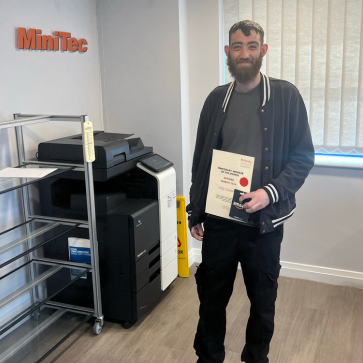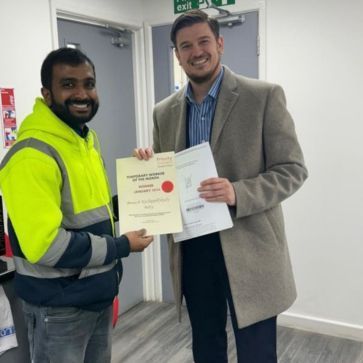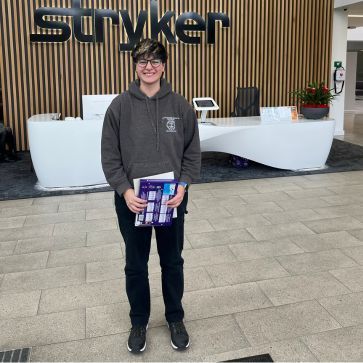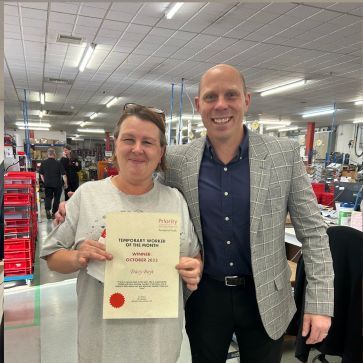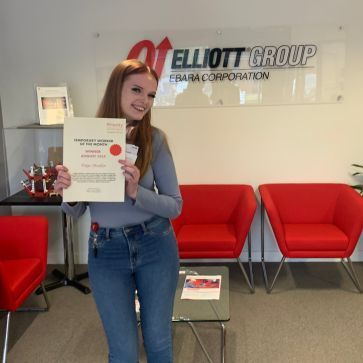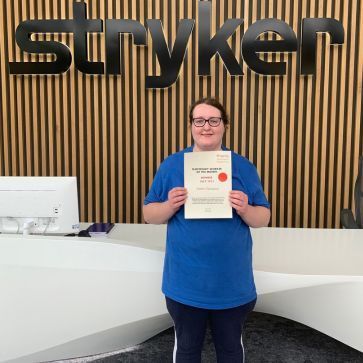
Interviews are nerve-wracking experiences - there is so much riding on whether you’ll give a good impression of yourself on the day.
It’s tempting to ask your friends, colleagues or family for advice, but the result is often that you end up with lots of different tips, strategies or secrets that they believe are the key to a successful interview.
Well-intentioned as they may be, all those opinions, views and nuggets of advice can be overwhelming and might make your pre-interview nerves worse!
The last thing you need when you go into an interview - whether it’s online or in person - is to have your head spinning and your mind in a jumble!
When you’re preparing for your interview, there are steps you can take to present yourself to help the interviewer see you at your best.
1. Practice being a STAR
Interviewers often want to know about your competencies as well as your experience. They will find out about these by asking you to give examples of work that you’ve done or situations you’ve been in that demonstrate how you have completed a particular role or task.
These tend to be quite detailed, so it’s well worth spending some time preparing for competency questions ahead of time so you don’t find yourself fishing around for answers.
Many interviewers will assess your competencies using the ‘STAR’ interview method which stands for:
- Situation
- Task
- Action
- Result
So let’s explain those in a bit more detail and give you some examples of how you might respond.
Situation - they’ll ask you to explain the circumstances around a particular example of your work that you’ve given to put it into context. This is the least important part of the STAR interview method as it’s just where you set the scene for the more interesting information.
Example: As Customer Service Assistant, we had a huge volume of calls following the release of a new product which had a few problems. The whole team was struggling as we weren’t able to meet our call answering targets.
Task - when you give an example of your work, you’ll need to explain the specific circumstances and what the task was you needed to achieve. Keep your description simple and factual, without too much elaboration.
Example: We wanted to keep customers happy and make sure our customer service ratings didn’t go down, so I suggested the team I work in each take on specific roles to ensure as many calls were answered on time as possible to resolve customers’ queries.
Action - by explaining what action you took in a particular situation, you can show the interviewer what skills you used and which of your personal qualities came to the fore. For example, were you particularly calm when everyone else was panicking during a crisis? Or did you behave proactively rather than waiting to be asked to do something? Make sure you describe what you specifically did, not just the team you work in.
Example: I supported some of the less experienced Customer Service Assistants to help them process calls quickly, whilst making sure that customers’ queries were dealt with appropriately. I set up an escalation process for questions that needed to be answered by technical support. This helped to stop people from getting overwrought as they had a clear process to follow.
Result - this is your chance to show what happened as a result of your actions. Did you retain an important client? Help to win a new piece of business? Improve a business system? You don’t need to sound as if you’re blowing your own trumpet, explain what the benefit was for your team or the business as a whole and show tangible or measurable results wherever you can.
You could also explain what the result was for you personally. Were you given more responsibility as a result of this example, or did you gain valuable skills that will make you more employable?
Example: The escalation process that I set up is now in the employee manual so everybody is better prepared if anything like that situation happens again. We’ve seen our customer satisfaction ratings increase by X points, despite the product problem.
It’s a good idea to jot down two or three examples of results you’ve achieved in your current or past jobs before the interview and make sure you can explain them clearly using the STAR method.
2. Take Ownership
It’s worth remembering that whilst you need to show the prospective employer what you have to offer, an interview is a two-way process. Make sure you find out everything that you want to know about the company, the job, what prospects it offers and the area you’ll be working in.
Find out in advance who will be interviewing you. Is it just one person or will there be a panel? Is it someone within the department or area you’re hoping to work in, or an HR or a general manager?
3. Be Positive
You may be fed up to the back teeth with your current workplace or colleagues, but don’t let this show in an interview - nobody wants to employ a whinger!
If your current job situation is challenging, explain what you’ve done to improve your working relationships or environment.
Interviewers will often ask why you’re thinking of leaving your current role. Always be careful not to discuss any potentially sensitive information about current colleagues and managers, or the company you currently work in.
You never know who your interviewer knows!
4. Keep the Interview Work Focused
One of the most commonly-asked ‘icebreaker’ questions in a job interview is ‘Tell me a bit about yourself.’
While it’s good to get your personality across, the interviewer will be more interested in your work experience and skills than a personal attribute, such as your ability to reach the top level in Grand Theft Auto!
Use the opportunity to explain how you got to where you are now and what jobs you’ve done in the past that could be useful for the interviewer to learn about.
5. Don’t be afraid to talk about your long-term career goals
Interviewers will often ask about your long-term goals with questions such as ’Where do you see yourself in three or five years' time?’
This is your chance to show your ambition, without sounding as if you have unrealistic expectations. From the research you’ve done ahead of the interview, you’ll hopefully know what the next step is after the role you’re applying for. You can show that you’re ambitious by explaining that you’d like to progress to the next level, but temper that by explaining what you will contribute to the company.
As with pretty much everything in life, it’s well worth preparing thoroughly for an interview to give yourself the best chance of success.
When you apply for a job with us, our friendly, expert team will will include expert advice on interview preparation. Just email us at office@priorityappoinments.co.uk to talk to one of our friendly, helpful team.

